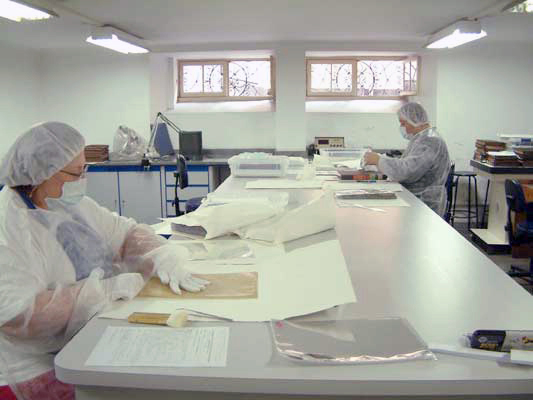São Paulo – UNESCO and the São Paulo City Hall are hosting Encontro do Patrimônio Documental de São Paulo (the São Paulo Documental Heritage Meeting) São Paulo, an event on heritage preservation slated for November 21 at the Historical Municipal Archive (pictured above) and featuring historian and Arab Brazilian Chamber of Commerce Cultural director Silvia Antibas.
Antibas will discuss the immigration history digitization project being rolled out by the Arab Chamber and by Lebanon’s Holy Spirit University of Kaslik (USEK).
“I’m really glad that UNESCO has invited us to showcase this work, which is already bearing fruit, despite being ant-like work. This is really important so we can publicize it, so institutions can become aware and join in. Having UNESCO recognize this work is an encouragement for us to go on,” she said.
Antibas will sit on a panel whose inquiries will include ‘Is preservation of documental heritage a job of culture or management?’. According to Antibas, “documenting can be done by technicians, but the content must be treated by specialists. Curation is important in determining what gets digitized and what gets thrown out, so there’s no pileup and you just keep what’s relevant,” explained Antibas.
Heloisa Abreu Dib Julien is the historian leading the project at the Arab Chamber. She explains that it begun in the second half of 2018 and has no set date to end. “It’s a job that we don’t know how long it’s going to last because it’s a lot. From the first publication – in 1893 – up till the 20s, for example, at least 290 titles were published,” Dib explains about the periodicals the project is currently scanning.
Among Arab newspapers and magazines published in Brazil, 104,000 images were scanned until now. The project team tracked documents at institutions such as Club Homs, Lar Sírio Pró-Infância, Arquivo Público do Estado de São Paulo, and Mário de Andrade Library.
After this first phase focused on periodicals, the digitalization will also cover registrations from the Arab institutions in Brazil themselves, such as clubs and charitable organizations, as well as documents and photos of Arab-descendant families. For Dib, the importance of this work is preserving the material in order to save the Arab culture in the country. “When we go to the organizations, they realize how few documents on Arab immigration they have. They start receiving more materials on that and open their eyes to that,” the historian said.
Quick facts
Encontro do Patrimônio Documental de São Paulo
November 21st
From 2 pm on
Arquivo Histórico Municipal de São Paulo – Praça Coronel Fernando Prestes, 152, Bom Retiro
Translated by Gabriel Pomerancblum & Guilherme Miranda




